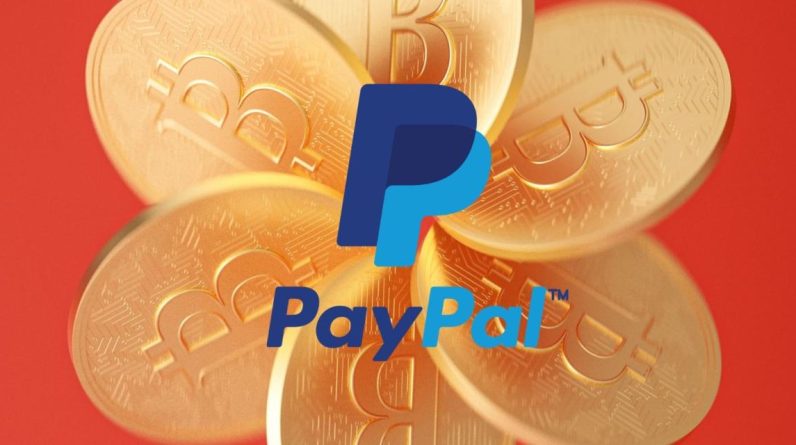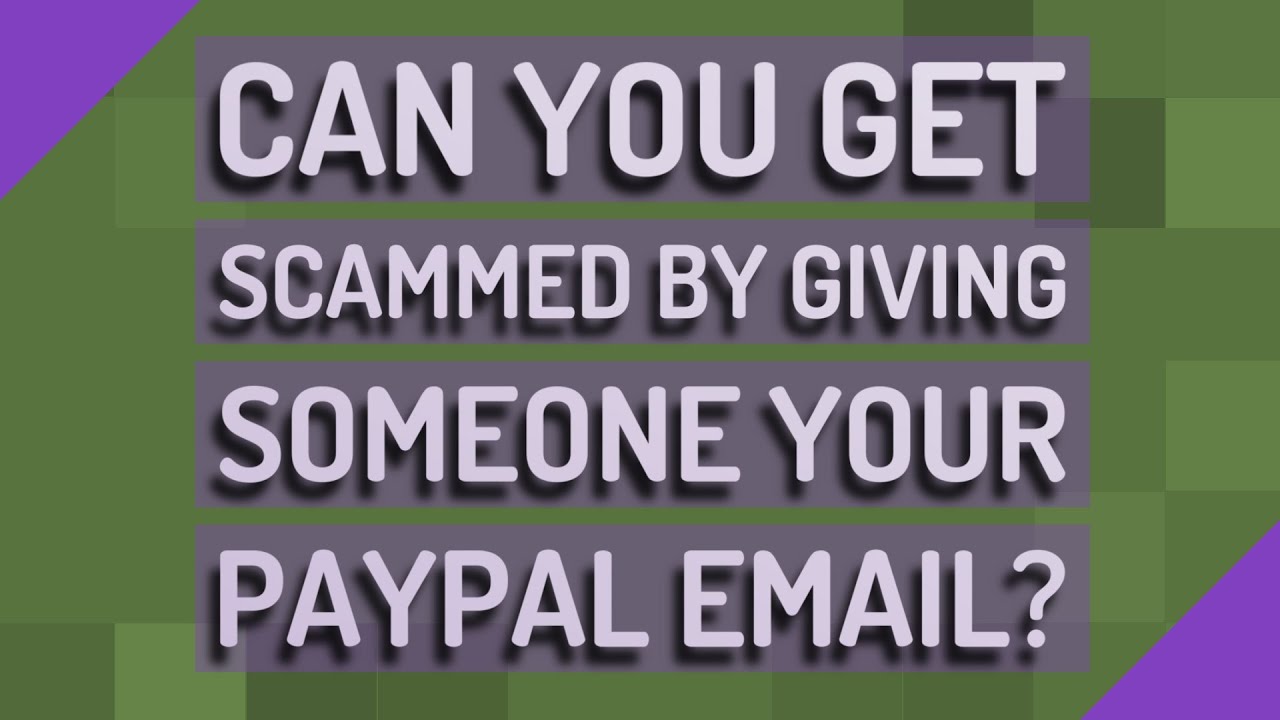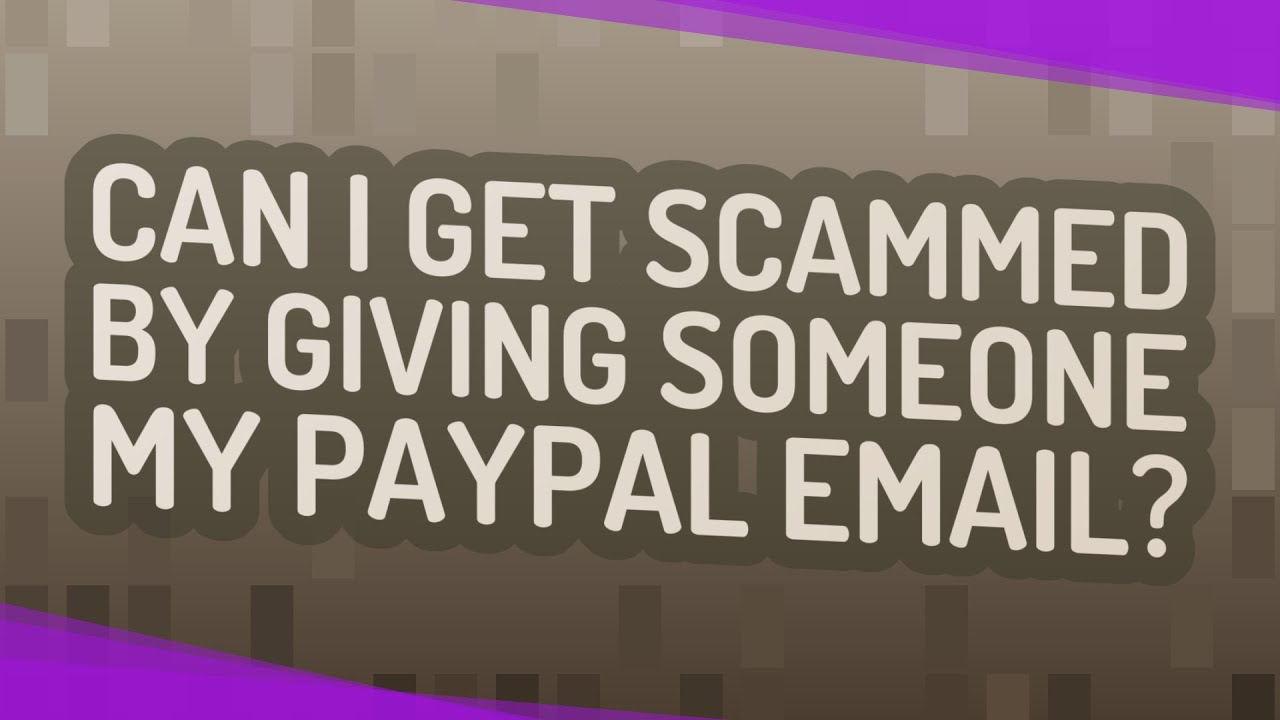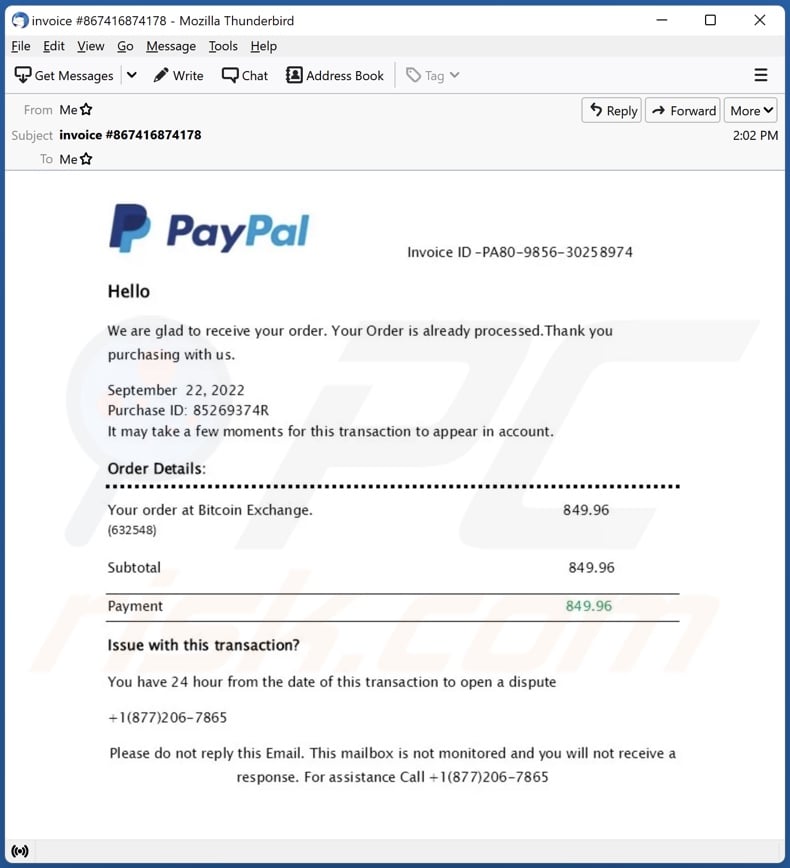
How scammers exploit PayPal email addresses
As a careful PayPal user, you’ll want to be aware of the clever tactics that fraudsters use to exploit PayPal email addresses. These scammers pose as PayPal and send official-looking emails designed to steal your financial and personal information.
One common tactic used is to send an email asking you to click a link and update your account information. When you click on the link, you will be taken to a fake website that resembles the PayPal website. On these fake sites, scammers will ask you to provide login credentials, including username, password, and security questions.
Another tactic is to send an email claiming that your account has been hacked. These emails often contain attachments that are supposed to contain instructions on how to fix the problem. However, when you open the attachment, you are actually installing malware on your computer, which can steal sensitive information.
Scammers may also try to exploit your PayPal email address by sending you phishing emails designed to get you to click links or share personal information. This email may look like it comes from PayPal, but the sender address may be different. Always check the sender’s address carefully before clicking on a link or providing any information.
To protect yourself from these scams, it is important to take the following precautions:
Never click on links in PayPal emails that ask you to update your account information.
Never open attachments from PayPal emails you don’t recognize.
Always check the sender’s address carefully before clicking on a link or providing personal information.
Enable two-factor authentication for your PayPal account.
Report any phishing or fraudulent emails to PayPal.
By following these steps, you can help protect yourself from fraudsters who attempt to exploit your PayPal email address. Remember, if an offer seems too good to be true, it probably is. Always be careful when interacting with PayPal email, and take the necessary precautions to keep your information safe.
Red flags and signs of a PayPal scam
When we talk about email fraud, PayPal is often an easy target. Scammers are skilled at impersonating PayPal and tricking people into sharing their sensitive information. But don’t worry, we’ll uncover their sneaky tactics and give you the warning signs to spot a PayPal scam.
One common way scammers cheat is by sending emails that look very similar to official PayPal emails. They may use official PayPal logos, colors, and layouts, making their emails appear legitimate. But this is where you need to be careful.
Pay attention to subtle differences such as grammar or spelling errors. Scammers are often in a hurry and may make this mistake. Moreover, check the sender’s email address carefully. Official PayPal email addresses will always end with “@paypal.com”.
Another warning sign is a fake sense of urgency. Scammers may try to panic you by claiming that your account will be frozen or closed if you don’t act immediately. Remember, PayPal will never give you strict deadlines or use aggressive tactics to force you to provide information.
They may also try to lure you out by offering prizes or incentives. If you receive an email promising a reward for updating your account information, be wary. PayPal never gives out rewards or asks for your personal information via email.
In some cases, fraudsters may go even further and create a fake website that resembles the real PayPal website. They may direct you there via a link in an email or message you on social media. Again, check the website URL carefully and make sure it is authentic.
Now that you know the warning signs, here are some additional tips to protect yourself from PayPal fraud:
Never click on a link in a PayPal email and enter your personal information. Visit the PayPal website directly through your web browser.
Use strong passwords and secure your email accounts with two-factor authentication.
Be wary of emails claiming that your account has been compromised. PayPal will contact you through their resolution center, not via email.
Report any suspicious activity to PayPal immediately.
Remember, scammers are constantly evolving and finding new ways to trick people. By knowing the warning signs and staying alert, you can protect yourself from PayPal fraud and keep your information safe.
Preventing PayPal scams with email protection
Fraudsters cleverly exploit PayPal email addresses to trick unsuspecting victims. They use devious tactics to trick victims into giving up personal information or hard-earned money.
One common way fraudsters use PayPal email addresses is to send fake emails pretending to be from PayPal. These emails may contain notifications about suspicious account activity or request updates to personal information. If victims click on the link in the email, they will be directed to a fake site designed to look like the real PayPal website. Fraudsters can then steal victims’ login information and access their PayPal accounts.
Another way fraudsters use PayPal email addresses is by contacting victims via email and pretending to be a PayPal employee. They may ask victims to provide personal information, such as Social Security numbers or bank account numbers. Fraudsters can use this information to steal victims’ identities or access their money.
It is important to be aware of the tactics used by scammers and take precautions to protect yourself. Always remember that PayPal will never ask you to provide personal information via email. If you receive an email that appears to be from PayPal and asks for personal information, never provide it. You can report the email to PayPal or forward it to your bank’s fraud department.
Additionally, it is recommended to use a different email address for your PayPal account compared to your personal email address. By doing this, you will make it harder for fraudsters to link your PayPal account to your personal information.
By following these tips, you can help protect yourself from fraudsters who exploit PayPal email addresses. Always be alert for phishing emails and never hesitate to contact PayPal or your bank if you suspect fraudulent activity.
Can you get scammed by giving someone your PayPal email?
You Need to Know: Security Risks with Sharing PayPal Email Addresses

In today’s digital era, the use of online payment services such as PayPal has become very common. However, as with all online services, there are security risks associated with using PayPal. One of the frequently asked questions is whether we can become a victim of fraud by giving someone our PayPal email address. In this article, we’ll talk about the security risks associated with sharing a PayPal email address and how you can protect yourself from fraud.
What can fraudsters do with PayPal email addresses?
Your PayPal email address is the primary key to logging into your PayPal account. If someone has access to your PayPal email address, they can do the following things:
- Accessing PayPal account : With a PayPal email address, fraudsters can try to log into your PayPal account. If they are successful, they can access your balance, transaction history, and other information.
- Submit payment request : Fraudsters can use your PayPal email address to send payment requests to other people. They can make fake payment requests and expect others to pay them.
- Enable fake notifications : Fraudsters can enable fake notifications on your PayPal account, so you won’t receive notifications about actual transactions.
- Change account information : Fraudsters can change your PayPal account information, such as your email address, phone number, or password.
How to protect yourself from fraud?

To protect yourself from fraud, there are several things you can do:
- Use a strong password : Make sure you use a strong and unique password for your PayPal account. Don’t use the same password for other accounts.
- Enable two-factor authentication : Enable two-factor authentication (2FA) on your PayPal account. This will make it more difficult for fraudsters to log into your account.
- Don’t share your PayPal email address : Don’t share your PayPal email address with anyone, unless you really trust that person.
- Check your balance regularly : Check your balance regularly to ensure that there are no unwanted transactions.
- Use security apps : Use security applications such as antivirus and firewall to protect your computer and mobile devices from malware and viruses.

What to do if you become a victim of fraud?
If you are a victim of fraud, there are several things you can do:
- Contact PayPal : Contact PayPal directly to report fraud. They will help you to restore your balance and ensure that your account is safe.
- Change password : Change your password as soon as possible to prevent fraudsters from accessing your account again.
- Check transaction history : Check your transaction history to ensure that there are no unwanted transactions.
- Report fraud : Report fraud to local authorities and to PayPal.
Conclusion
Sharing your PayPal email address with someone can make you vulnerable to fraud. However, by following the security tips above, you can protect yourself from fraud. Never share your PayPal email address with anyone, unless you really trust that person. Always check your balance regularly and use security applications to protect your computer and mobile devices. If you are a victim of fraud, contact PayPal directly and report the fraud to local authorities.
Additional Tips
- Do not use your PayPal email address as your primary email address.
- Don’t use the same password for other accounts.
- Enable notifications on your PayPal account to ensure that you receive notifications about actual transactions.
- Don’t click on unwanted links or files from people you don’t know.
- Don’t share your PayPal account information with anyone unless you really trust that person.
By following the tips above, you can protect yourself from fraud and use PayPal services safely.

